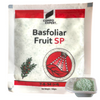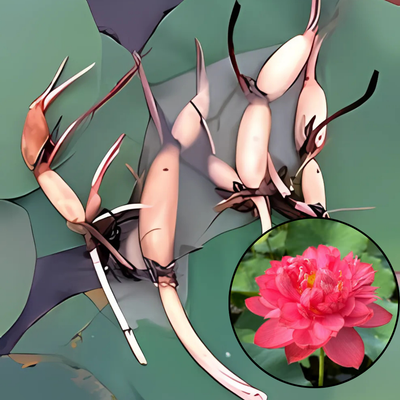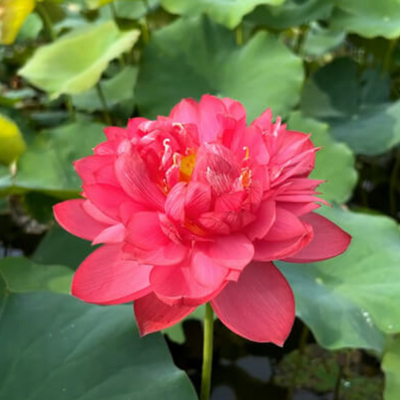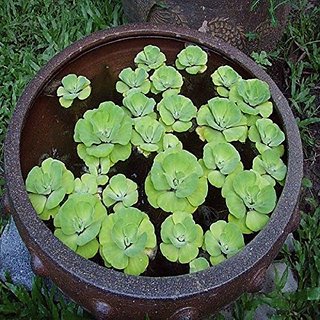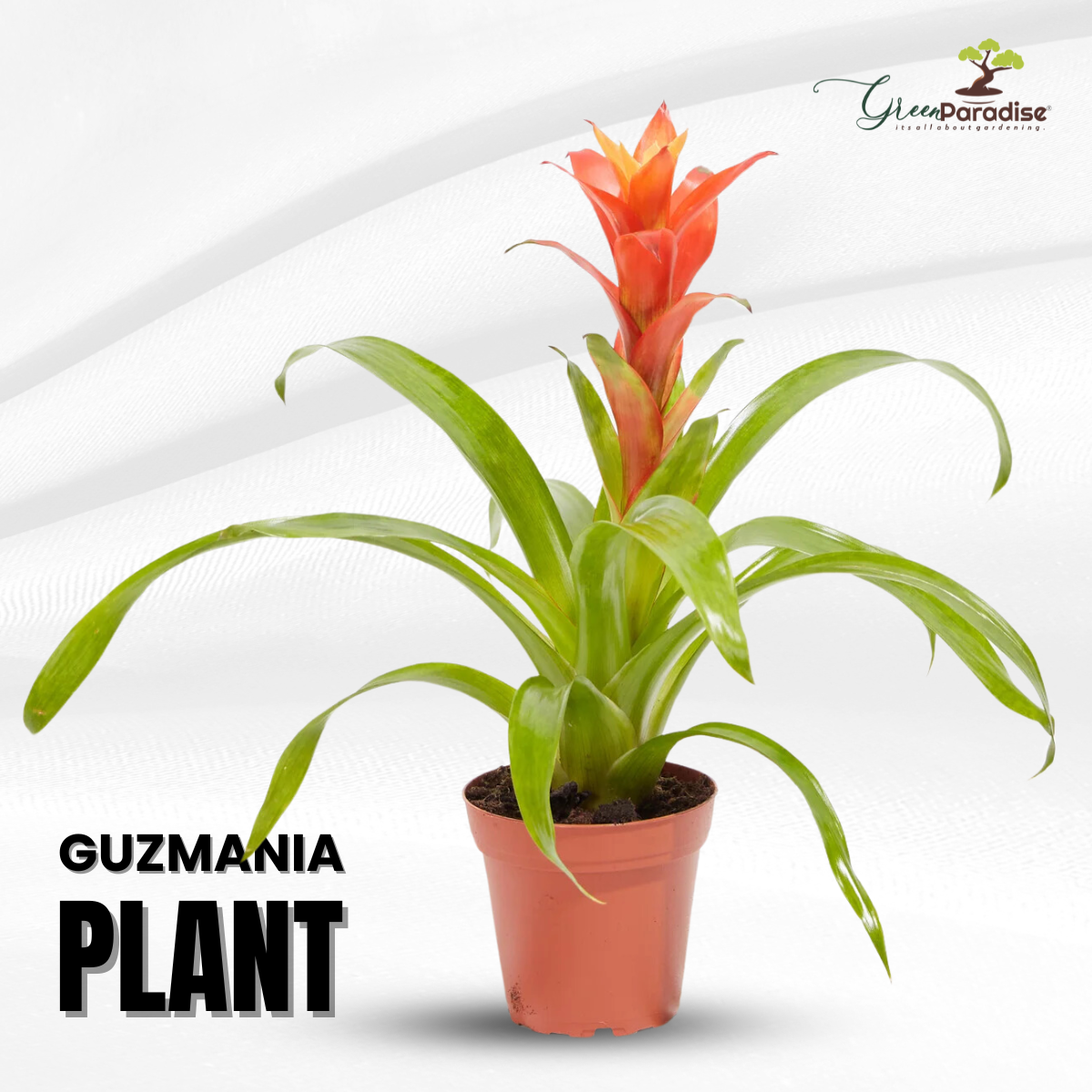
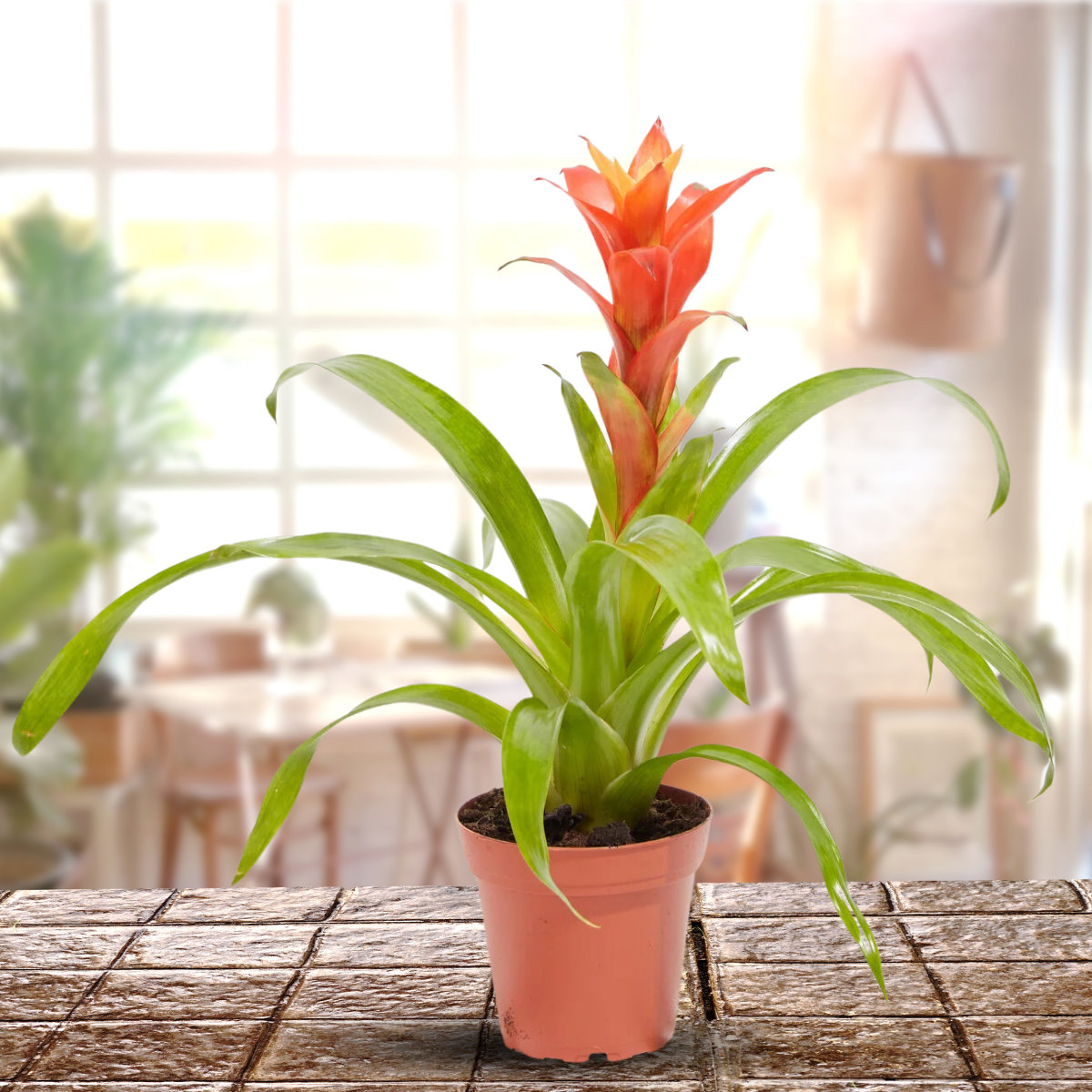
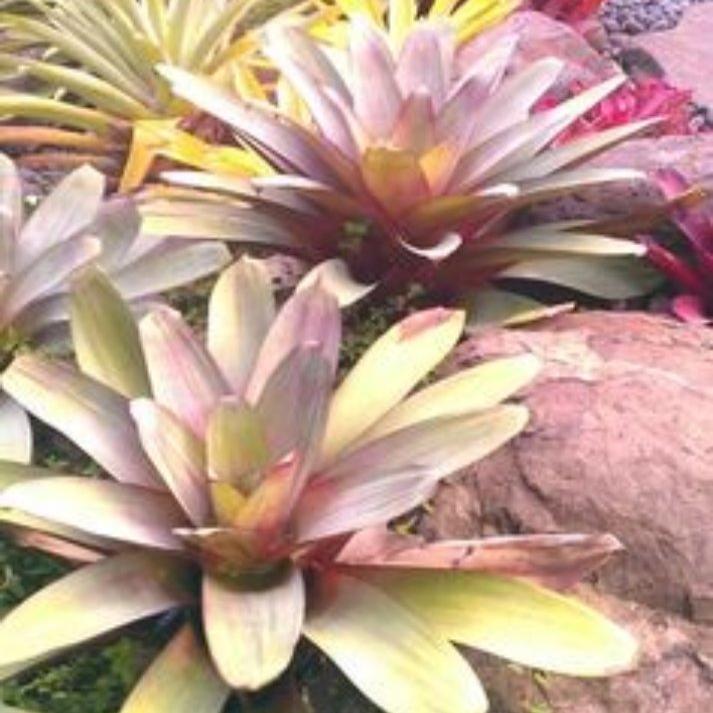
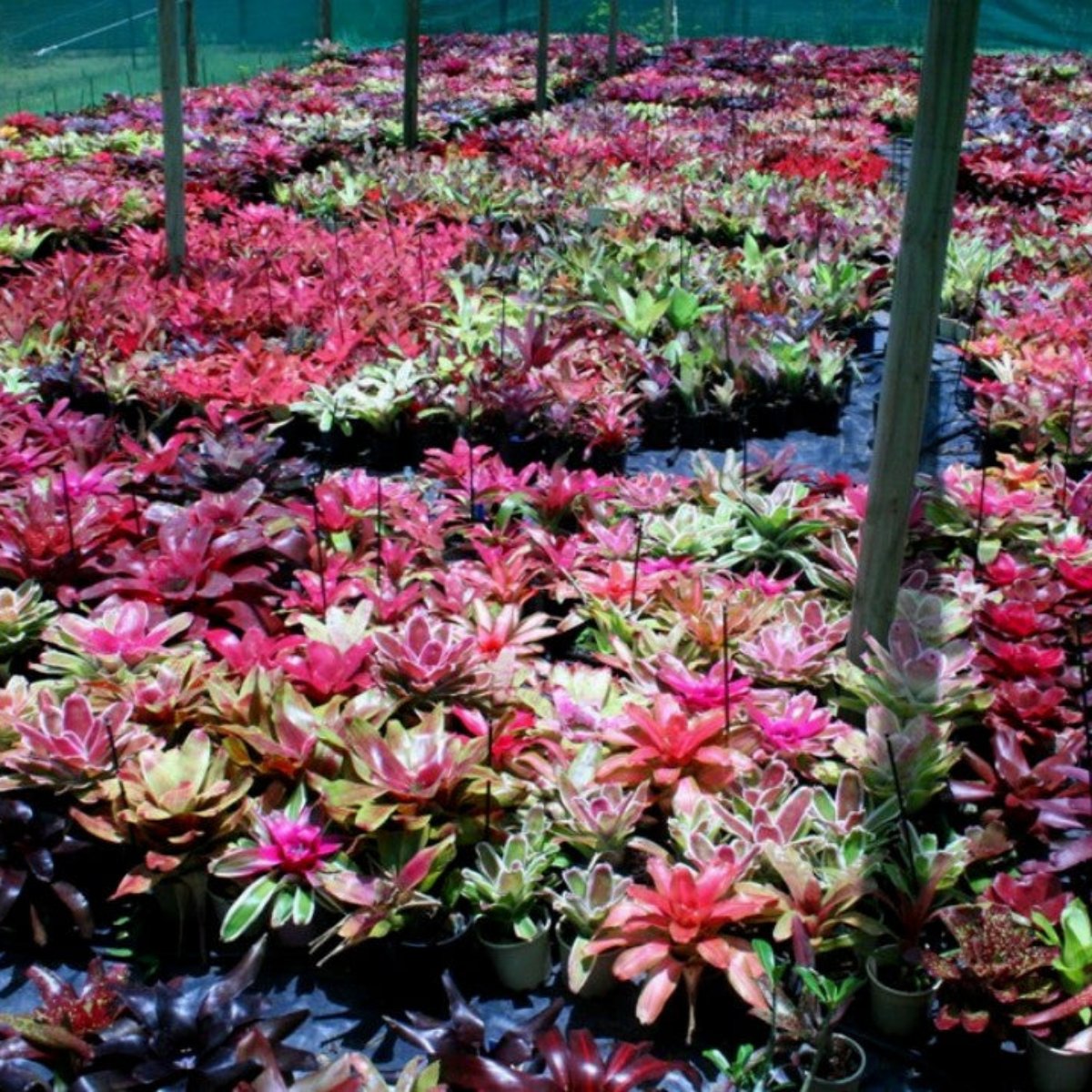
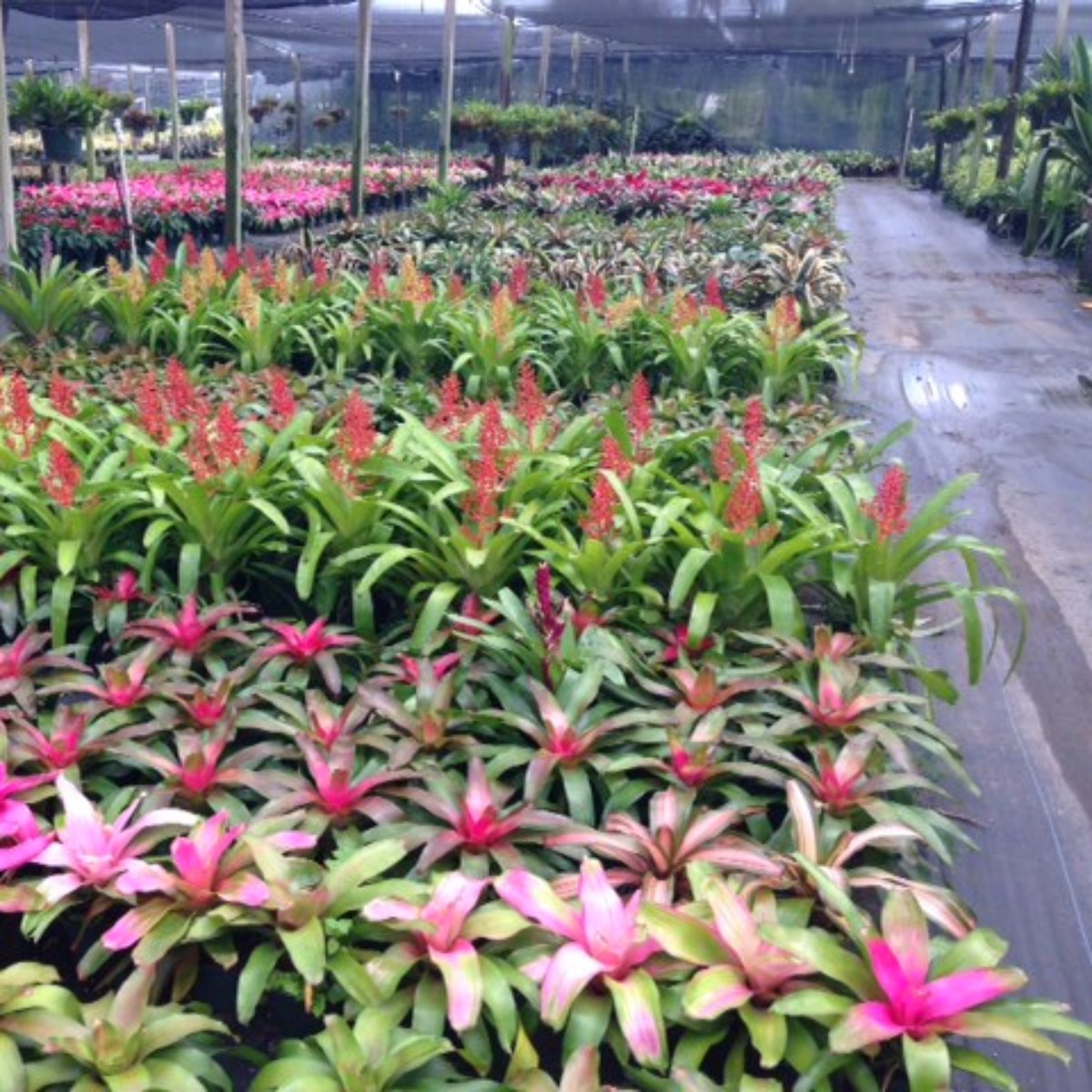
Green Paradise® Alcanterea Guzmania flowering Live Plant
Guaranteed Safe Checkout
Green Paradise Offers Beautiful Alcantarea Plant
About Alcantarea Plant
Alcantarea is a genus of flowering plants in the Bromeliaceae family, native to the rainforests of Brazil. These plants are known for their large, striking rosettes of stiff, leathery leaves and their stunning, long-lasting inflorescence. The genus is named after Dom Pedro d'Alcântara, the second emperor of Brazil.
Here are some key features and characteristics of the Alcantarea plant:
Appearance:
-
Alcantarea plants are typically large and impressive.
-
They form rosettes of tough, strap-shaped leaves that can reach several feet in length.
-
The leaves are often stiff and have spiny margins, providing the plant with a unique and attractive appearance.
-
Some species have leaves with silvery or reddish hues.
Size:
-
Depending on the species, Alcantarea plants can vary in size.
-
Some species are smaller and suitable for indoor cultivation, while others can grow to massive proportions, reaching heights of several feet.
Inflorescence:
-
Alcantarea plants are monocarpic, meaning they flower only once in their lifetime.
-
When they do bloom, usually after several years of growth, a tall, erect flower spike emerges from the center of the rosette.
-
The inflorescence can reach impressive heights, often exceeding the height of the plant itself.
-
The flowers are usually brightly colored and attract pollinators such as birds and insects.
Flowering and Reproduction:
-
The flowering period of Alcantarea plants can last for several weeks or even months.
-
Once the plant has finished flowering, it typically dies.
-
However, before dying, it produces offshoots or "pups" around the base of the rosette.
-
These pups can be extracted and replanted to help propagate new plants.
Environmental Requirements:
-
Alcantarea plants are generally adapted to tropical or subtropical climates.
-
They thrive in areas with high humidity and require bright, indirect light.
-
While they can tolerate some shade, insufficient light may result in leggy growth and a loss of color.
-
They prefer well-draining soil and should be watered regularly to keep the soil lightly moist.
Cultivation:
-
Alcantarea plants are popular among collectors and enthusiasts of tropical plants.
-
They can be grown outdoors in suitable climates or as indoor plants in containers.
-
Due to their large size, they are often used as focal points in gardens or as statement plants in interior spaces.
-
When grown indoors, they require sufficient space and a bright location to thrive.
Some popular species of Alcantarea include Alcantarea imperialis, Alcantarea geniculata, and Alcantarea vinicolor. These plants are admired for their architectural foliage and unique beauty, making them sought-after additions to tropical gardens, botanical collections, and indoor plant displays.
Remember to research the specific care requirements of the Alcantarea species you are interested in, as they may vary slightly.
How To Grow Alcantarea Plant
here are some general guidelines to help you get started:
Climate:
-
Alcantarea plants thrive in warm and humid climates.
-
They are well-suited to tropical and subtropical regions, as they prefer temperatures between 70°F (21°C) and 90°F (32°C).
-
However, they can tolerate brief periods of cooler temperatures.
Sunlight:
-
Alcantarea plants require bright, indirect sunlight.
-
They should be placed in a location that receives partial shade to filtered sunlight.
-
Avoid exposing them to direct, intense sunlight, as it can scorch their leaves.
Soil:
-
These plants prefer well-draining soil with good moisture retention.
-
A mix of equal parts peat moss, perlite, and orchid bark or a quality commercial bromeliad mix works well.
-
The soil should have good aeration to prevent waterlogging.
Watering:
-
Alcantarea plants are epiphytic bromeliads, meaning they naturally grow on other plants and derive nutrients from rainwater and debris that collects in their central cups.
-
Water the soil moderately, keeping it slightly damp but not waterlogged.
-
Allowing the plant to sit in standing water can cause root rot.
Fertilizer:
-
Alcantarea plants are relatively low-maintenance when it comes to fertilizing.
-
Apply a balanced, water-soluble fertilizer designed for bromeliads once every two to three months during the growing season (spring and summer).
-
For the correct dosage, follow the instructions on the fertilizer packaging.
Humidity:
-
These plants appreciate high humidity levels.
-
If you live in a dry climate, you can increase humidity by misting the plant regularly or placing a tray filled with water near the plant.
-
Avoid misting the leaves directly, as this can lead to rot.
Repotting:
-
Alcantarea plants typically do not require frequent repotting.
-
They prefer to be slightly root-bound, so only repot when necessary.
-
When repotting, use a container that provides enough space for the plant to grow, and use fresh potting mix.
Propagation:
-
Alcantarea plants can be propagated by division.
-
When the plant has produced offsets or "pups," carefully separate them from the parent plant using a sharp, sterile knife.
-
Plant the pups in separate pots with well-draining soil.
Maintenance:
-
Regularly remove any dead or decaying leaves to maintain the plant's appearance and prevent the risk of disease.
-
Keep an eye out for pests such as mealybugs or scale insects, and treat them promptly with an appropriate insecticide if necessary.
Remember that different species of Alcantarea may have slightly different care requirements. It's always a good idea to research the specific species you are growing to ensure you provide the best conditions for its growth.

